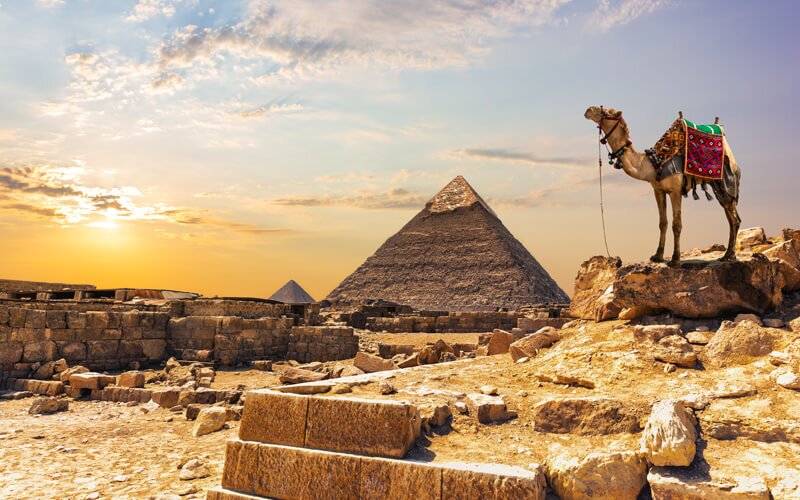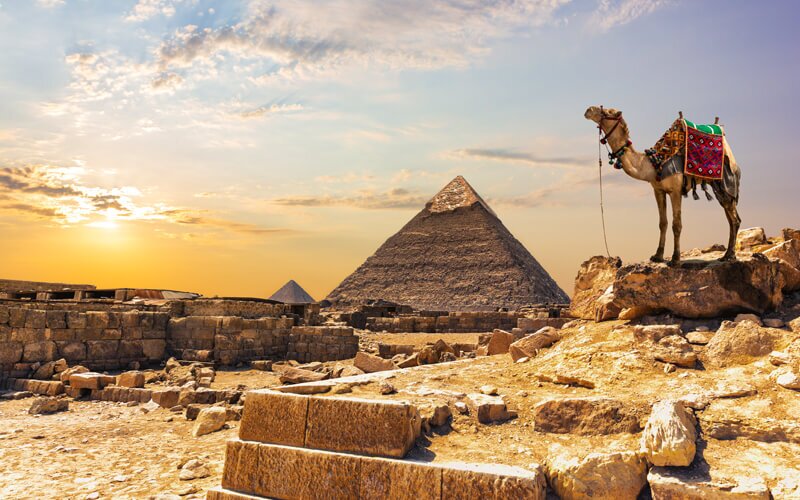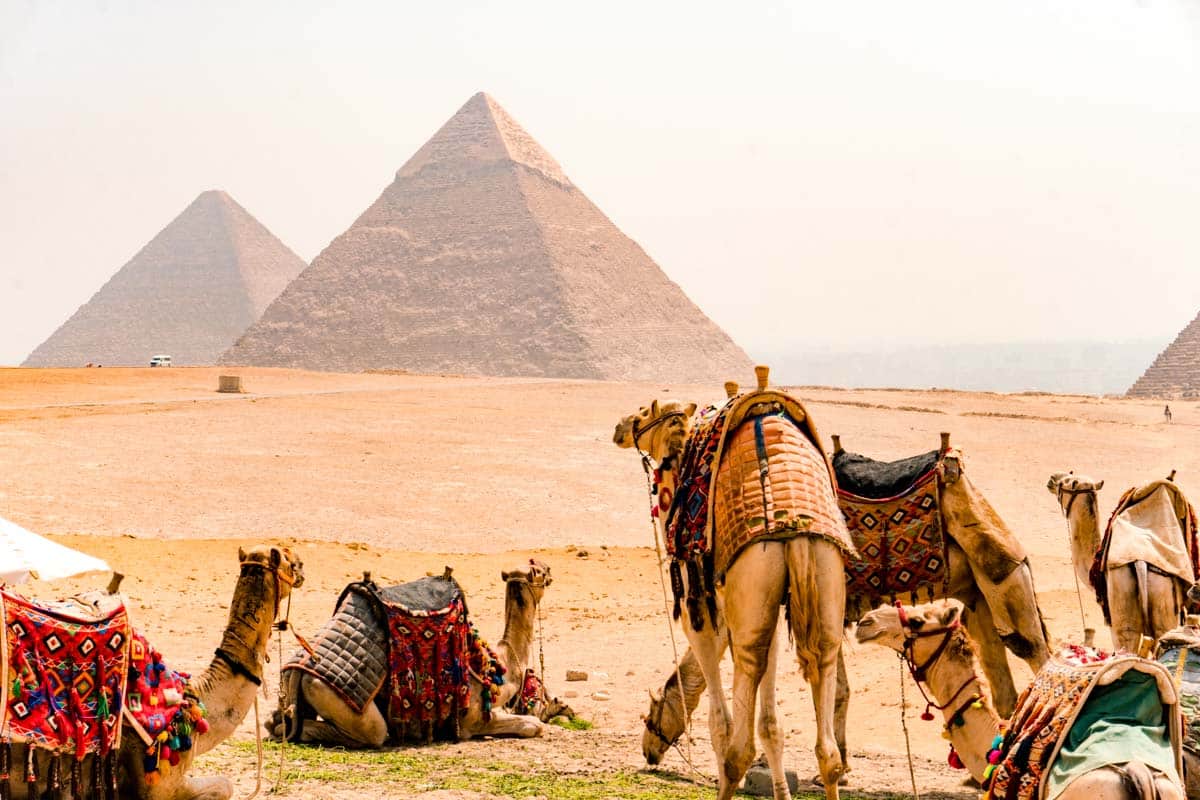
Egypt, the land of pharaohs, pyramids, and the majestic Nile, is a destination that has captivated travelers for centuries. From the ancient wonders that whisper tales of a glorious past to the vibrant culture and breathtaking landscapes, Egypt offers an unforgettable experience for every type of adventurer. Whether you’re a history buff, an avid diver, or simply seeking an exotic escape, Egypt promises to leave you spellbound. This comprehensive guide will delve into the must-see attractions, historical significance, practical travel tips, accommodation options, transportation methods, and the best time to visit this captivating country.
Top Attractions: Journey Through Time and Majesty
Egypt is brimming with historical sites and natural wonders that will transport you back in time and leave you in awe of the ancient civilization. Here are some of the top attractions you shouldn’t miss:

Related Articles about Unveiling the Wonders of Egypt: A Guide to the Land of Pharaohs:
- Bula! Your Ultimate Guide to the Fijian Paradise
- A Traveler’s Guide to Surabaya: Discovering the Soul of Indonesia’s City of Heroes
- Lebanon: A Tapestry of Time, Taste, and Terracotta Dreams
- España: A Tapestry of Sun, Sangria, and Centuries of Stories – Your Ultimate Travel Guide
- La Dolce Vita Awaits: Your Ultimate Travel Guide to Italy
-
The Pyramids of Giza and the Sphinx: Standing as a testament to human ingenuity and architectural prowess, the Pyramids of Giza are the only surviving wonder of the ancient world. Explore the Great Pyramid of Khufu, marvel at the Sphinx, and delve into the mysteries surrounding these colossal structures. Consider a camel ride for a truly immersive experience.
-
Luxor’s Temples: Karnak and Luxor Temple: Located on the east bank of the Nile, Luxor boasts some of the most impressive temple complexes in Egypt. Karnak Temple, the largest religious structure ever built, showcases colossal columns, towering obelisks, and intricate carvings. Luxor Temple, connected to Karnak by the Avenue of Sphinxes, offers a stunning display of pharaonic art and architecture.
-
Valley of the Kings and Hatshepsut’s Temple: Cross the Nile to the west bank and explore the Valley of the Kings, the final resting place of pharaohs like Tutankhamun. Descend into the elaborately decorated tombs and witness the rich artistry of ancient Egyptian burial practices. Nearby, Hatshepsut’s Temple, a stunning mortuary temple dedicated to the female pharaoh Hatshepsut, stands in stark contrast against the dramatic desert landscape.

-
Abu Simbel Temples: Carved into a mountainside in southern Egypt, the Abu Simbel Temples are a testament to the power and ambition of Pharaoh Ramses II. These colossal temples, rescued from the rising waters of Lake Nasser in the 1960s, are a breathtaking sight to behold, especially at sunrise.
-
Egyptian Museum, Cairo: Home to an unparalleled collection of ancient Egyptian artifacts, the Egyptian Museum in Cairo offers a comprehensive glimpse into the country’s rich history. From the treasures of Tutankhamun to countless statues, sarcophagi, and mummies, the museum is a treasure trove of ancient wonders. (Note: The Grand Egyptian Museum, set to be the world’s largest archaeological museum, is expected to open soon and will house many of the artifacts currently in the Egyptian Museum.)
-
Islamic Cairo: Step into a world of bustling souks, ornate mosques, and historic architecture in Islamic Cairo. Explore the Khan el-Khalili bazaar, a vibrant marketplace brimming with spices, perfumes, jewelry, and traditional crafts. Visit the Alabaster Mosque of Muhammad Ali, an Ottoman-style masterpiece that dominates the Cairo skyline.
-
Red Sea Resorts: Sharm el-Sheikh and Hurghada: Escape the hustle and bustle of the cities and unwind in the Red Sea resorts of Sharm el-Sheikh and Hurghada. These popular destinations offer pristine beaches, crystal-clear waters, and world-class diving and snorkeling opportunities. Explore vibrant coral reefs, encounter diverse marine life, and enjoy a range of water sports activities.
-
White Desert: Experience the surreal beauty of the White Desert, a protected area known for its otherworldly landscape of chalk-white rock formations. Explore the unique formations, camp under the stars, and witness the magical colors of the desert at sunset and sunrise.
A Journey Through History: Unraveling the Secrets of Ancient Egypt
Egypt’s history stretches back millennia, with a rich tapestry of pharaohs, dynasties, and empires. Understanding the historical context of the sites you visit will enhance your appreciation for the country’s cultural heritage.
-
The Old Kingdom (c. 2686-2181 BC): This era saw the construction of the iconic pyramids of Giza, marking a period of centralized power and monumental architecture.
-
The Middle Kingdom (c. 2055-1650 BC): A period of stability and expansion, the Middle Kingdom saw the rise of Thebes (modern-day Luxor) as a major religious and political center.
-
The New Kingdom (c. 1550-1069 BC): This golden age of Egyptian history saw the reign of powerful pharaohs like Hatshepsut, Akhenaten, and Tutankhamun, and the construction of impressive temples and tombs in Luxor and the Valley of the Kings.
-
Greco-Roman Period (332 BC – 641 AD): Following the conquest of Egypt by Alexander the Great, the country was ruled by the Ptolemaic dynasty and later became part of the Roman Empire. This period saw the construction of temples dedicated to both Egyptian and Greco-Roman deities.
-
Islamic Period (641 AD – Present): The Arab conquest of Egypt in the 7th century marked the beginning of the Islamic era, which has shaped the country’s culture, religion, and architecture.
Travel Tips: Navigating the Land of the Pharaohs
Planning your trip to Egypt requires careful consideration of various factors to ensure a smooth and enjoyable experience.
-
Visa Requirements: Check the visa requirements for your nationality before traveling to Egypt. Many nationalities can obtain a visa on arrival at Cairo International Airport, but it’s always best to confirm the latest regulations.
-
Currency and Payments: The Egyptian pound (EGP) is the local currency. Credit cards are accepted in major hotels and tourist establishments, but it’s advisable to carry cash for smaller purchases and bargaining in local markets.
-
Language: Arabic is the official language of Egypt. While English is widely spoken in tourist areas, learning a few basic Arabic phrases will be appreciated by locals.
-
Dress Code: Egypt is a predominantly Muslim country, so it’s advisable to dress modestly, especially when visiting religious sites. Cover your shoulders and knees when entering mosques and temples.
-
Bargaining: Bargaining is a common practice in Egyptian markets and bazaars. Don’t be afraid to negotiate prices, but always do so respectfully.
-
Safety: Egypt is generally a safe country for tourists, but it’s important to be aware of your surroundings and take precautions against petty theft. Avoid walking alone in poorly lit areas at night and be wary of scams.
-
Photography: Be respectful when taking photos of people, especially women. Ask for permission before taking their picture.
-
Hydration: Stay hydrated by drinking plenty of bottled water, especially during the hot summer months.
-
Tipping: Tipping is customary in Egypt for various services, including restaurant service, taxi rides, and porterage.
Accommodation Options: From Budget to Luxury
Egypt offers a wide range of accommodation options to suit every budget and preference.
-
Budget: Hostels and budget hotels are available in major cities and tourist areas, offering basic amenities at affordable prices.
-
Mid-Range: Comfortable hotels with amenities like air conditioning, restaurants, and swimming pools are widely available in popular destinations.
-
Luxury: Egypt boasts a selection of luxurious hotels and resorts, offering world-class amenities, stunning views, and impeccable service.
-
Nile Cruises: A Nile cruise is a popular way to explore the ancient sites along the river. A variety of cruise options are available, ranging from budget-friendly to luxurious.
Transportation: Getting Around Egypt
Navigating Egypt is relatively easy, with a variety of transportation options available.
-
Flights: Domestic flights are a convenient way to travel between major cities like Cairo, Luxor, and Aswan.
-
Trains: Egypt’s railway network connects major cities and towns. Sleeper trains are available for overnight journeys.
-
Buses: Long-distance buses are a budget-friendly option for traveling between cities.
-
Taxis: Taxis are readily available in cities and tourist areas. Agree on a fare before starting your journey.
-
Uber/Careem: Ride-hailing apps like Uber and Careem are available in Cairo and other major cities.
-
Felucca: A traditional Egyptian sailboat, a felucca ride on the Nile is a relaxing and scenic way to experience the river.
Best Time to Visit: Planning Your Egyptian Adventure
The best time to visit Egypt is during the cooler months of October to April. During this period, the temperatures are more pleasant, making it ideal for exploring the ancient sites and enjoying outdoor activities. The summer months (May to September) can be extremely hot, especially in Upper Egypt (Luxor and Aswan), so it’s best to avoid visiting during this time unless you can tolerate high temperatures.
Egypt: A Land of Timeless Wonders
Egypt is more than just pyramids and pharaohs. It’s a land of vibrant culture, breathtaking landscapes, and warm hospitality. From the ancient wonders that whisper tales of a glorious past to the bustling cities and tranquil Red Sea resorts, Egypt offers a diverse and unforgettable travel experience. With careful planning and an open mind, you can unlock the secrets of this captivating country and create memories that will last a lifetime. So, pack your bags, prepare to be amazed, and embark on an extraordinary journey through the land of the pharaohs.





